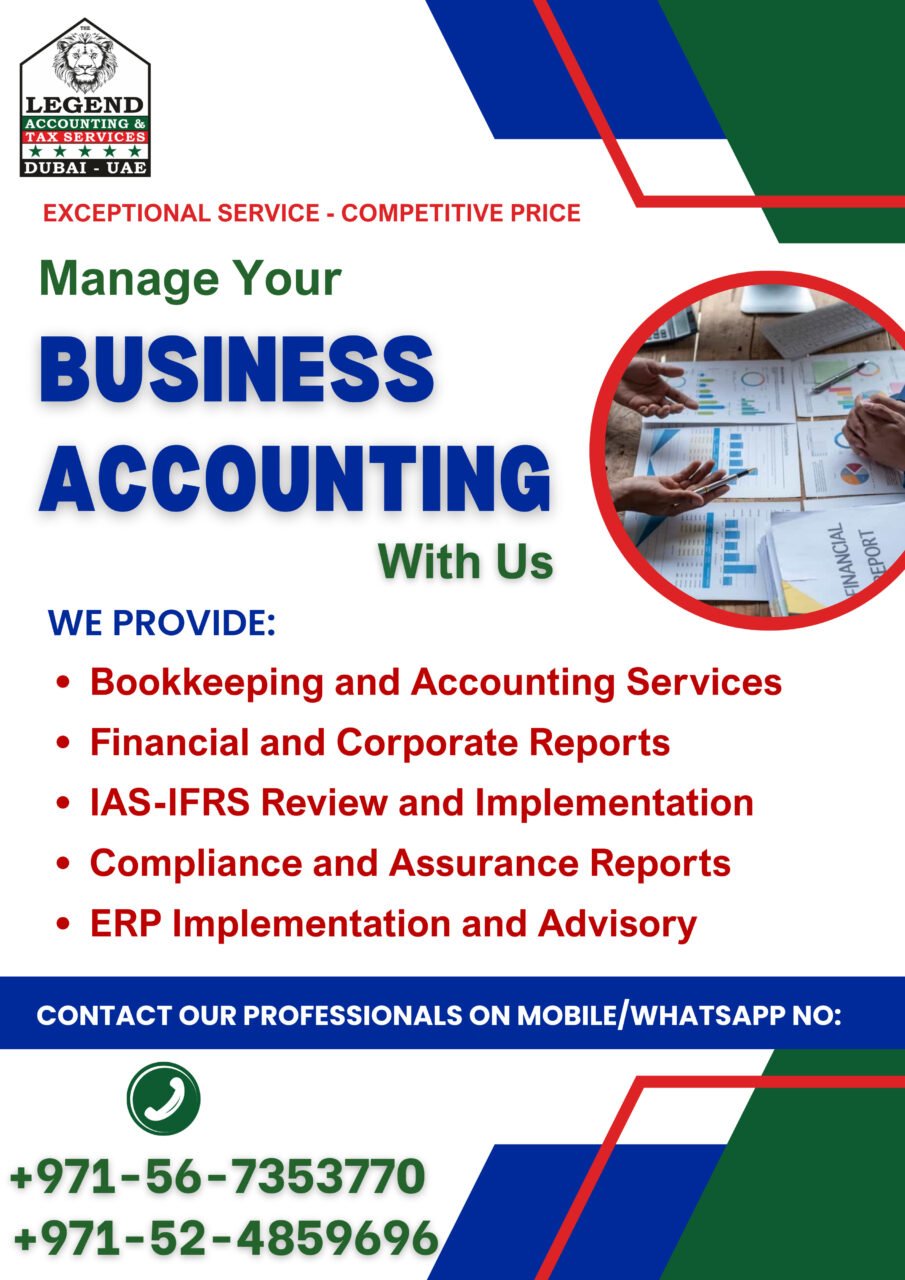Understanding the Difference between VAT and Corporate Tax
by Legend Accounting and Tax Services in Dubai
As businesses in Dubai and the UAE grow and expand, understanding various tax obligations becomes essential. Two key types of taxes that every business owner should be familiar with are Value Added Tax (VAT) and Corporate Tax. While both impact the financial operations of a business, they are fundamentally different in purpose, structure, and application.
Value Added Tax (VAT):
Introduced in the UAE in 2018, VAT is an indirect tax applied to the sale of goods and services. Businesses collect VAT on behalf of the government at each stage of the supply chain and pay the collected tax to the Federal Tax Authority (FTA). The standard VAT rate in the UAE is currently 5%. VAT ultimately affects the end consumer, as it is included in the price of goods and services. Businesses must register for VAT if their taxable turnover exceeds the mandatory threshold and must comply with filing and reporting requirements.
Corporate Tax:
Corporate Tax, on the other hand, is a direct tax imposed on the net income or profits of a corporation. The UAE has introduced Corporate Tax effective from June 2023, with a standard rate of 9% for businesses exceeding the profit threshold. Unlike VAT, Corporate Tax is paid directly by the company based on its taxable income. It is not a tax that is passed on to consumers but rather a financial obligation that directly impacts a business’s bottom line.
At Legend Accounting and Tax Services in Dubai, we provide expert guidance on both VAT and Corporate Tax compliance, helping businesses navigate these obligations efficiently. Contact us today for tailored tax solutions to ensure full compliance and optimize your tax strategy.
Contact us today for a free consultation! Click here…





